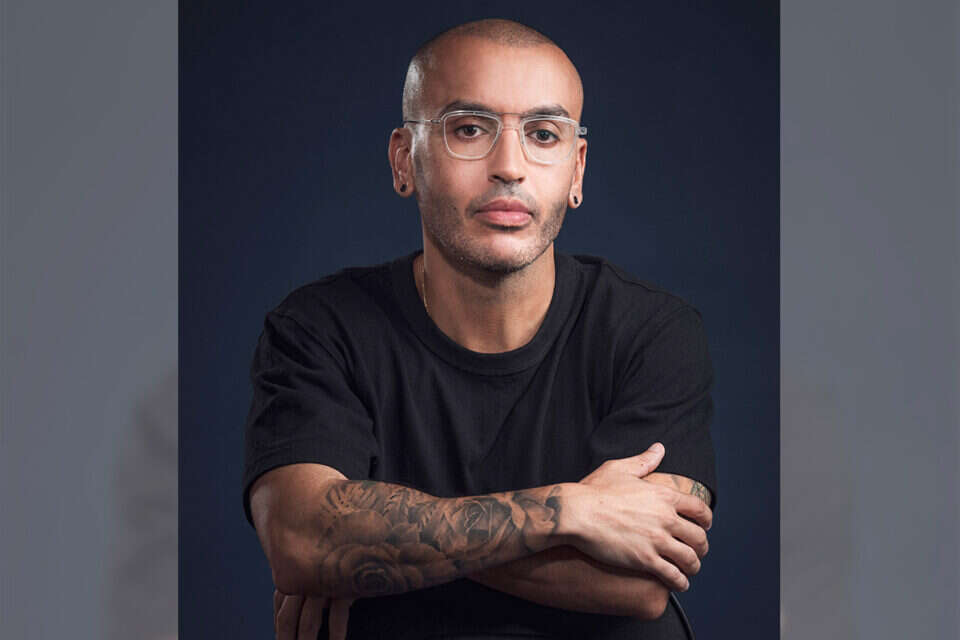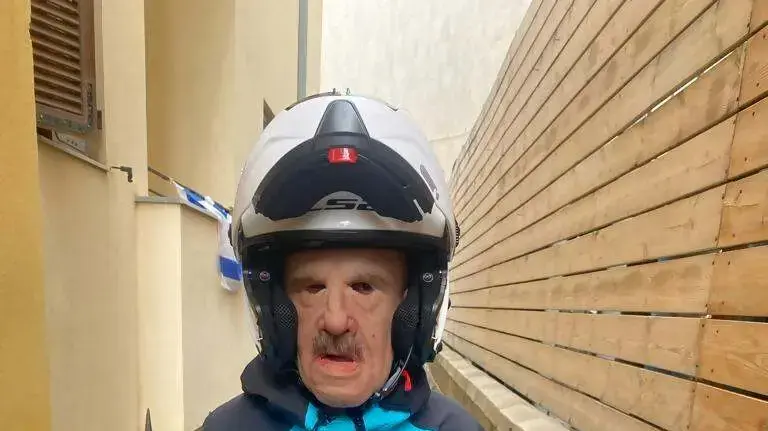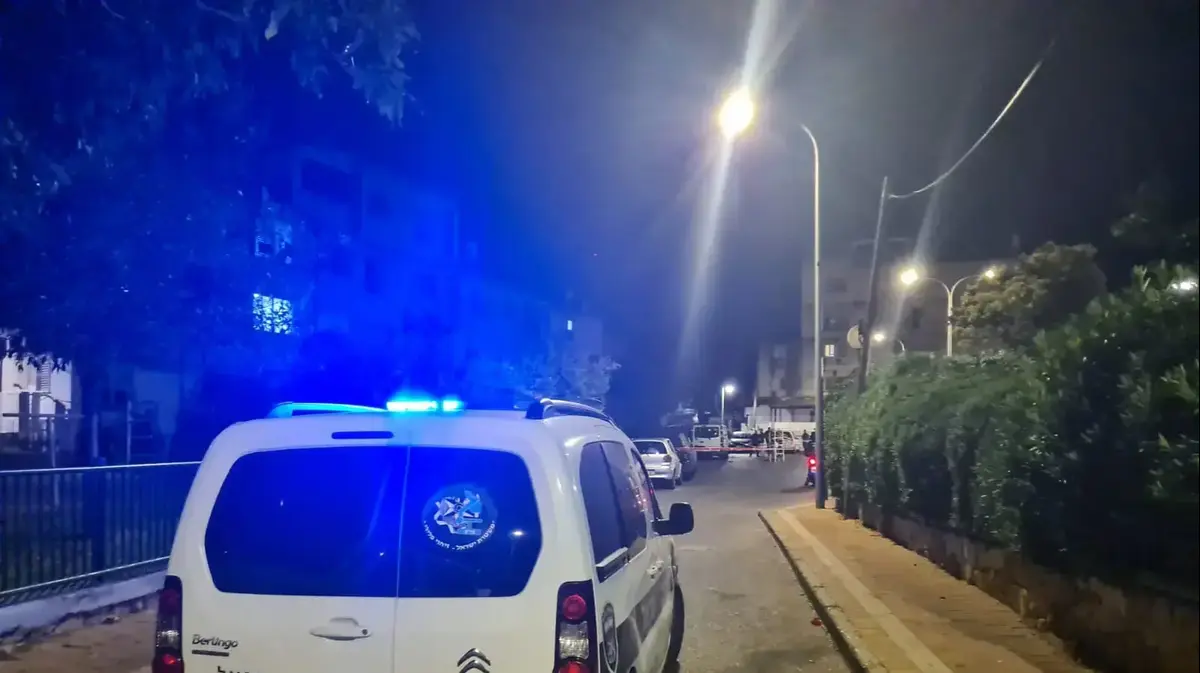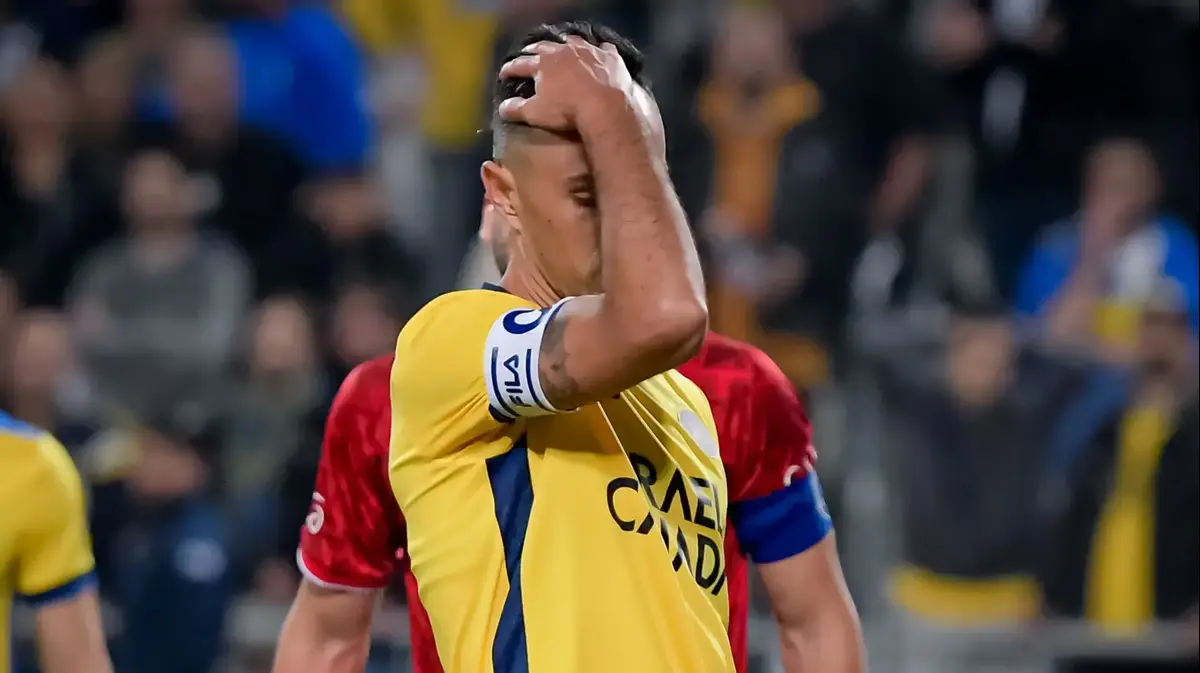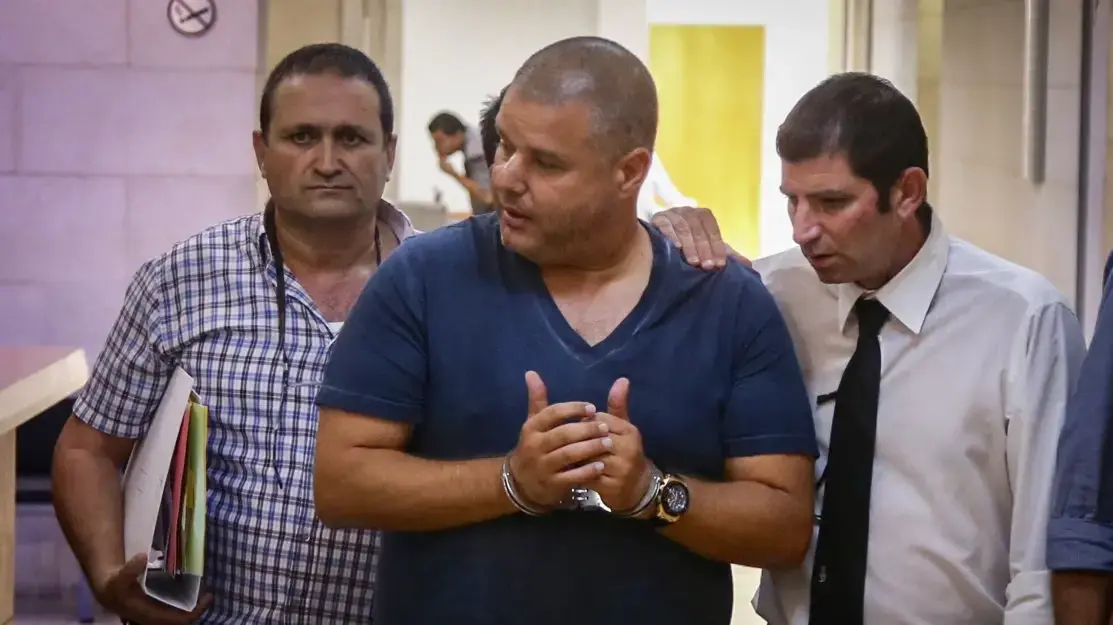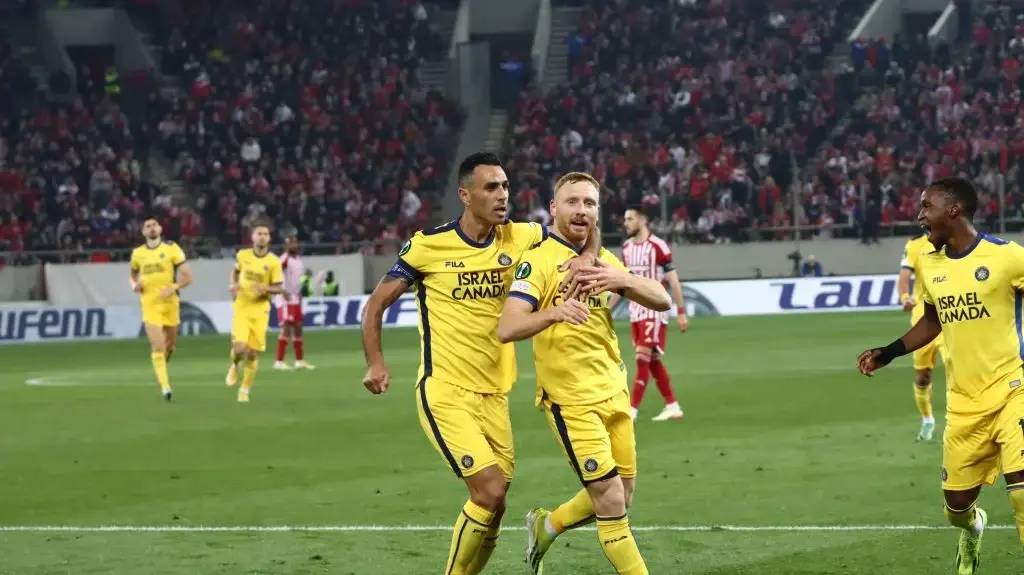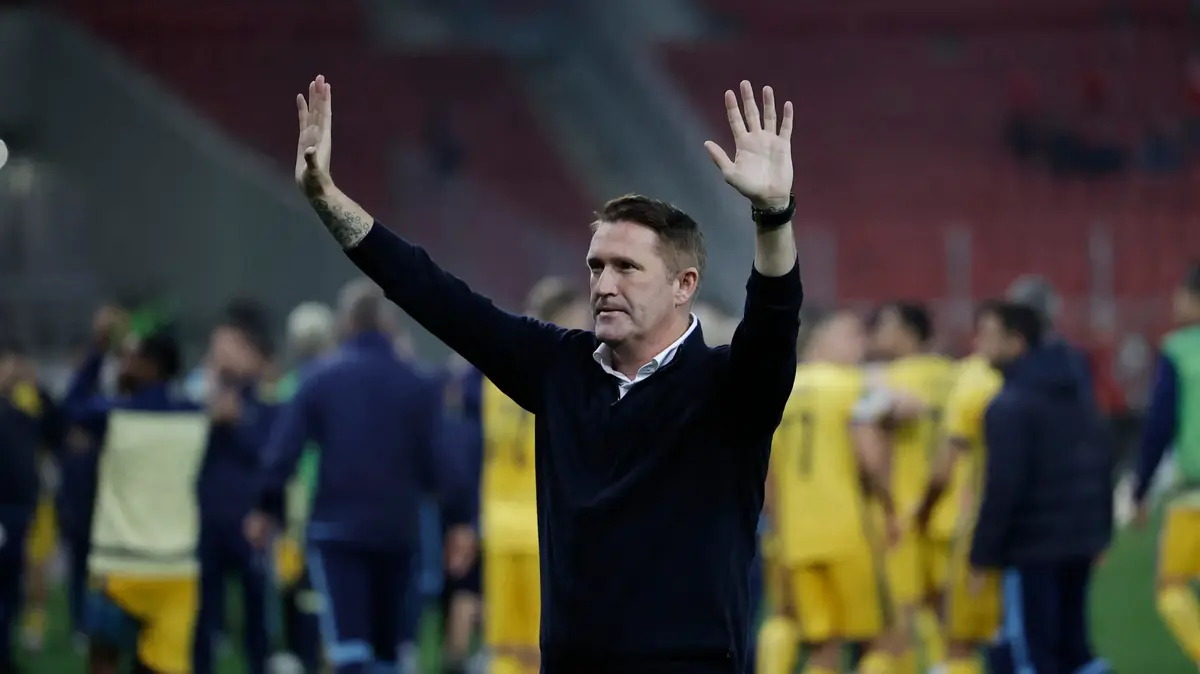Tuesday, 20:00, Eretz Israel Museum, premiere of "Yes Man".
Publicists already know: in these events I do not find myself.
As early as the third year of my job as a tired entertainment reporter from launches and premieres.
It may not be the right move for someone who is supposed to mix at every opportunity, but whole evenings of "Stunning," "You're Perfectly Dressed" and "Must Have Coffee of the Week" did their thing quickly to make me realize there was no truth, or benefit in them.
There is a lot of hypocrisy in them, and in my eyes also embarrassment.
But this evening I have no choice.
This is the premiere of a new docu-reality of yes, of which I am one of the stars.
Also in the cast are Ruthie Brodo, Avivit Bar-Zohar, singer Dikla and Melech Zilberschlag - four who are experienced and accustomed to these events, and I know them all as an interviewer.
"You're the least famous, so you're also the least interesting," I tell myself.
It does not really help.
This stressful day opened with a phone call from my mom, Etty, the significant woman in my life and one of the reasons I agreed to participate in the project.
That most of my life I'm trying to prove to her that something came out of me anyway, and it's not that bad.
In her old world "gay" was something wrong, which for quite some time she was ashamed of, and I just wanted to prove that she has nothing to be ashamed of.
"I will not come tonight," she said nonchalantly, "I do not feel well."
"Mom, this is not a time for tension," I reply, "I'm stressed anyway."
But she did not laugh.
This was our shortest conversation ever, which ended in my disconnect, something that had not happened in 38 years.
The drama did its thing, and after a little intervention from my big and problem-solving sister, Lilach, I got the message that she would come.
The entrance to the Eretz Israel Museum is packed with a long line of people.
Some of them are my guests, with whom I try in every way to avoid a crossroads.
Not because I'm not glad they came, but because I really do not know what to say in such situations.
Just before we enter, two of my guests arrive - Rafi and Tzipi Refaeli.
The chance that you will find the first one in a media event is nil.
The entrance of the surprising guests to the event jumps all the photographers in our direction.
A moment that is a dream for those who seek the spotlight, but less so for those who do not want to be at the center of the story.
I realize I have nowhere to run.
For the first time in my life I am on the other side.
I am interviewed, and I have to provide answers - honest, authentic and interesting answers, just as I expect from my interviewees.
Six consecutive interviews, and no wine helps the mouth stop drying out.
The photographers jumped.
Suissa (center) at the premiere with Rafi Refaeli, his partner Tal, Tzipi Refaeli and his mother Etty,
• • •
This story begins a year and eight months ago.
I, who am used to reporting on auditions and the participants in them, find myself passing a party.
In front of me in the room of "Koda Productions" owned by Ram Landes are the super-cast Moran Marciano, the Bar Tal cast, who contacted me a few days before, and Talia Inbar, the editor and chief director, who together with the editor Ziggy (Eliyahu Zigdon) will crack everything that happens in any period The photographs.
It will be much more than I imagined.
I have known Talia since the days we served together at the GLC. We were not friends, we were content with polite peace.
In this encounter I reveal to them the years of my life in points.
Repentance, coming out in question, coming out of the closet, conversion therapies, professional dilemmas, a desire to be a father.
There were also tears, a recurring theme in this season's filming, that spilled just as I told of the surprise I was planning for my mother's 60th birthday, which would include a significant closing: a trip to Thailand, to the beach where our relationship was renewed after almost half a year of disconnection.
The trip was canceled, you already know why, but in the production they arranged for me to close another circle.
16 years of entertainment coverage have taught me that auditions always end badly.
"What is the chance that out of 300 people will actually choose me," I told my partner Tal, "Besides, the more I do not want, the more they will want me."
A tactic I invented to deal with fear of rejection.
Quite a few journalists yearn for publication.
For entertainment writers it is more available and more seductive: the daily friction with the pullers on the strings can be misleading and create the illusion that the story is about us.
"The day you think you're the story and not them, you'll start to be a less good reporter, and your hourglass will flip," a close friend told me.
This is one of the reasons why I refused all the offers I received over the years from many reality shows.
I was flattered, and refused.
This time I agreed.
I'm proud of the way I went, happy for my part, and I have a lot of good to show and an important message to convey - a great family, a good relationship, and a job that never ceases to challenge.
On the other hand, if everything is good - what do I need it for?
Deep down I hoped to get a negative answer to spare myself the hesitation.
I know them all as an interviewer.
Suissa (left) with "Yes Man" participants Melech Zilberschlag, Avivit Bar Zohar, Ruthi Brodo, Hanoch Daum and Dikla, Photo: Pini Silok
During the filming I discovered that there is also quite a bit of pain below the surface.
Things I refrained from engaging in, because at home we swept them under the rug.
It is no coincidence that the sentences I hate the most are the ones I heard many times in my youth: "Be careful not to tell anyone," "If Dad knows this is your end," "No one knows, and let it stay that way."
When you grow up with a lot of these, it's not a coincidence that you make a living from engaging in the lives of others.
The things that really require deep probing, you prefer to keep to yourself.
This series forced me to deal with them, for the first time.
The experience was shaky.
• • •
Sunday, November 11, 2020, 8 p.m.
This is a time when I usually struggle with the alarm clock, but this morning I get out of bed easily, simply because I did not fall asleep all night.
This is the first day of filming, and the first item is an accompaniment to me when I am a guest on Paula and Leon's morning show.
Meaning: Three programs of the show, which broadcast live on Rainbow 12, and two more of "Yes Man".
A total of five cameras on my face.
And if I have a message for you from this morning - it is to never drink chocolate on stressful days.
Immediately afterwards a first meeting with Hanoch Daum, the man in the near future I, who is accustomed to say "no" first, is obliged to say "yes" to him on every possible task, without arguments and without assumptions.
My story this season will be divided into two - starting with the professional side, and from there moving on to the personal.
"From easy to heavy", as promised by lead producer Tal Barel and acting producer Danit Daniel.
But what do you do when even the lightest is very heavy?
Already in the first meeting, Daum has been flooding an issue that has been burning in me for quite a few years.
"Leave the place you come from, where you were educated not to gossip," he says, "give me one important thing you posted, that has meaning."
I remind him of the story of Aline Levy and the Lips, which I published in those days, and if one girl understood that lips should not look like that, or at least not be born with such, I did mine.
His question takes me 16 years back, to a meeting with Ron Leshem, then the editor of the nrg website and the deputy editor of Maariv, and in fact the man who made me say "yes" and agree to be a gossip reporter.
"Bring yourself into the realm, and not the other way around," he told me, "make it something else."
I was then barely 22. A year later I already had a daily section of a page, under the name "King of the Swamp."
The challenge of filling this page every day, along with the accomplishments and competitiveness inherent in me, made me work endlessly, and sometimes even forget that behind every item there is people’s lives and emotions.
Every day I would come to the system first and go last, after I had already prepared items for the site, the morning after.
In the evenings I would walk around between launches and events, and at the end, until the middle of the night, sit in the brasserie restaurant, where the celebrities would gather, trying to get some last items before the sun rises again.
In the morning I would wake up with my father's moral sermons: "You shall not gossip among your people. Not only are you gossiping, but everyone who reads you - his punishment is on you."
For quite a few years I walked around the world feeling heavy, imagining how the angels of Ma'aleh were busy building a special hell for me.
The most difficult struggles were when the subjects of the coverage called out angrily.
The morning that Mickey Haimovich, then the face of the news in Israel, called to scream at me why I ruined the surprise party she planned for her then husband, Eli Ildis, I will never forget.
The truth is that I was also really surprised that the pleasant and warm voice from the news could reach these tones.
To this day I hear her "do not be naive", after I told her "I do not know what you are talking about".
Dudu Topaz, the first in entertainment at the time, scolded me for an unflattering headline, which I did not give at all - but what does it matter, I signed the news.
Zvika Pick threatened to sue, and ended with an offer to sit down for lunch.
There were many more.
But most of all I remember the phone call with Eyal Golan, the morning I published the news that he and his wife Ilanit Levy are separating.
After making sure it was me, he cracked a sequence of curses, that the paper would not survive.
I did not respond.
As a young reporter, who has dedicated his life to exposures and for whom “first publication” is breathable air, I was very proud of this publication, which made waves and was mentioned wherever possible.
For a moment I did not stop for a moment to think about the pain of the other side, until Daum came and sent me to discuss the issue with the female side in the story, Ilanit Levy.
Ilanit Levy is one of the favorite women in the industry.
Paperless, at eye level, speaks from the heart.
My big fear was that she would say that my publication was the last nail in the coffin for their divorce, or that the children did not know about the breakup and heard about it for the first time in the newspaper.
The good news: She did not mention either.
The bad news: The things she said were much harder than I thought.
Following the publication, she decided to stay in a relationship for a few more months, which she did not want.
• • •
The excavation in the professional aspect raised many questions.
What is my contribution as a journalist?
Am I posting important things?
How do I live in peace with probing into the lives of others?
And until when can I continue to do that?
I do not have unequivocal answers, but today, after many years, I know I can make a big impact and convey meaningful messages - things I did not understand at first.
This understanding makes me feel much more comfortable continuing to engage in this field vigorously.
But all these were only the preparation for the second, more difficult part - the personal part.
I was born in Jaffa to father Daniel (64), a plumber, and mother Etty (61), a housewife.
I have an older sister, Lilach (43), and a younger brother, Yosef (30).
At the age of 6 we moved to Bat Yam.
A year later my father repented, and took the family with him.
I studied at Aderet High School in Bat Yam and graduated from Beit Vagan High School in the city. After the army, I started asking questions.
The personal part was the hardest.
Suissa at the bar mitzvah,
At the age of 24 I came out of the closet, and it was a step that did not go well with me.
My parents sent me for conversion treatments and visits to rabbis and Kabbalists.
"We will turn every stone and pay as much as we need until we fix it," my mother explained to me, and together we embarked on an impossible journey to change sexual orientation.
Every Thursday at 8 a.m. I would pick her up from Bat Yam in my car, and together we would drive to Kabbalah in Beit Dagan and wait in line.
It was a half-hour drive, which felt like four hours.
I hated every tree and every stone along the way, and especially the square, which signaled to me that we were really close.
There were many other people standing outside with me waiting for the blessing.
The common denominator for all of them was serious illness.
On the first visit he took a sheet of paper and drew on it a large rectangle, which he crossed in line.
"On the right the righteous, on the left the wicked," he said.
"Which side do you want to be on?"
Fear paralyzed me.
"The answer is clear," he continued, "I see with your eyes."
It was also clear to me which side I wanted to be on.
I sipped his every word intently.
I listened to the instructions.
Satisfaction must not be achieved in any way.
Thoughts need to be diverted.
My good half was up to the task.
But that was not enough.
On the second visit and those that came after it, we switched to a different method.
"I see in you that everything is fine," he said, half as knowing with complete confidence and half as inquiring, making sure we were on the same page.
I replied in the affirmative.
He would write things down on a small piece of paper, fold it into four, serve me a glass of water and let me swallow.
I would hold the folded paper in my hand and swallow it without thinking twice.
That's how it is at every meeting.
The meetings took place once a week, for a little over two months.
They lasted until that time I failed the mission.
I arrived, waited, asked for complete medicine, but he immediately recognized that I had violated our request.
"Why did you do that?", He asked, "Do you want to move on to the wicked?".
I said, "Never."
I went home, to bed, head in the pillow, and was sucked into depression.
It was clear to me as a sun that there were only two options for me: to stop life, or to leave the rabbi.
Luckily, I chose the right option.
But the connection with my parents was severed for a long time.
13 years after that nightmare I went to a meeting with a religious psychologist, who thinks it is possible to "convert", and also does it for those who want it.
This time it was a choice, as part of the filming for "Yes Man".
Suddenly I felt again the same dissonance that did not give me rest, not the dissonance between the bad gay Eran and the good Straight Eran - I have already resolved this internal argument, and not because of that commonplace - but the dissonance between the smart and pleasant man, who just wanted my best, and his thought Me to something else.
The night before the meeting I barely fell asleep.
I made the list of arguments in my head, everything was reasoned and detailed, I just waited for the moment when I would sit in front of the man and slap him in the face.
Seemingly, a rare opportunity for me to close a circle and tell him what I should have said then, and I was not brave enough to do so.
But already on the way to it I felt that something was going to go wrong.
I started sweating, not from the heat.
I was in great anxiety.
I immediately returned to the dismantled 25-year-old Eran, the one who had just come out of the closet, and no one in the family was willing to accept him.
I swallowed a large rock ball and remembered a paper sliding down my throat, with words I did not know what they were.
In the meeting with the man I fell silent.
Everything I made was forgotten.
So many years have passed since the custom of Beit Dagan, and I could not understand: Now that I have finally been given the opportunity, how did I not shout?
How did I not scream?
How did I not blame him for his mistake?
How did I not vomit the paper?
I realized that despite all the years that had passed, that trauma was still ingrained in me, deep inside.
But alongside that understanding, I also know I am whole.
I have not half bad and half good, just Eran.
• • •
The last part of the filming was the hardest: the confrontation with my dad.
He is an honest man, with good qualities, and I am exactly everything he did not want: out in question, secular, Tel Avivian, journalist, gay.
These gaps caused a distance between us that we never tried to correct.
His first significant serious conversation with me was at the age of 24 and a half, when I met him outside the yeshiva where he was studying and told him that "I am not attracted to women."
The word "gay" was never mentioned to him.
We did not have a TV at home, or as my father calls it, a "TV," so the chances of him being photographed for a series to be aired on a TV were nil.
But after a heavy persuasion campaign of mine, of my mother and of my sister, he was surprisingly convinced.
"Only without private things," he told me, and I knew very well what he was talking about, or in this case, preferring not to talk.
Inside I knew that this might be the only opportunity I would ever have to open to him everything I had not dared to open for many years.
"I asked to be alone."
Suissa with his father, Daniel, Photo: From the series
At this meeting I asked the production, for the first time since filming began, to be alone with my dad.
The solution found is photography in a vehicle that is networked with three stationary cameras, which document every angle, and another accompanying vehicle that shoots from the outside.
We went to Rabban Gamliel's grave in Yavne, a reconstruction of a journey we often did in my youth.
The conversation actually began with his praise of me.
"I keep saying that no one like yours has dimensions," he said.
“So why are you the least close to me of all?” I asked.
"Your lifestyle does not align with halakhah," he replied, and I said, "but I am your son, I am a part of you, it is first and foremost."
He said, "I do not know this world."
The climax came when I told him I had a partner for three years, Tal.
My father met him at Friday dinners at my house, but there he was introduced as a "friend."
He even congratulated each of us on a "decent pairing," and did not imagine the possibility that we had already found each other.
A 13-year-old yoke fell from my back, and tears choked my throat.
On the last day of filming, I was required to meet my father and Tal.
I will only say that if I had watched it from the side, I would have been convinced that it was filmed.
But as the cliché goes, life is bigger than any script.
The premiere has begun.
As soon as the lights went out and the first episode started, I left the hall.
"It's already too much for me," I explained to director Talia.
I went outside and remembered that my job is to tell the stories of others, even if now hundreds of people are sitting in the hall watching me on a huge screen.
And if I still managed to get the message across, I did mine.
erans@israelhayom.co.il
"Yes Man" airs on yes and STINGTV on Sundays-Tuesdays

